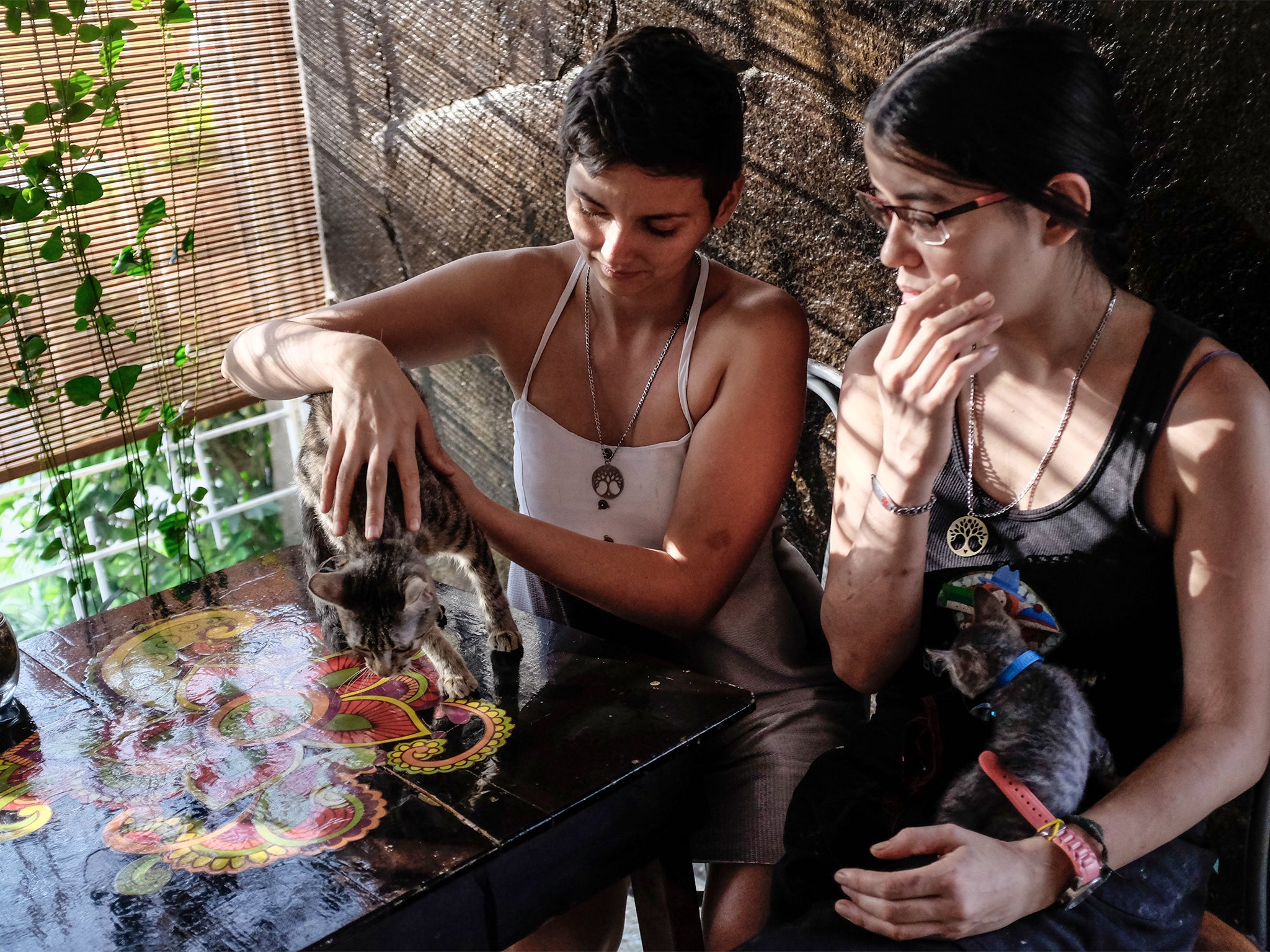Costa Rican woman able to marry her lesbian partner because her birth certificate records her as male
'We had to make public that it was not our mistake - it is a question of basic rights'

Your support helps us to tell the story
From reproductive rights to climate change to Big Tech, The Independent is on the ground when the story is developing. Whether it's investigating the financials of Elon Musk's pro-Trump PAC or producing our latest documentary, 'The A Word', which shines a light on the American women fighting for reproductive rights, we know how important it is to parse out the facts from the messaging.
At such a critical moment in US history, we need reporters on the ground. Your donation allows us to keep sending journalists to speak to both sides of the story.
The Independent is trusted by Americans across the entire political spectrum. And unlike many other quality news outlets, we choose not to lock Americans out of our reporting and analysis with paywalls. We believe quality journalism should be available to everyone, paid for by those who can afford it.
Your support makes all the difference.When Jazmin Elizondo Arias was born in 1991, someone made a mistake and noted on her birth certificate that she was male, and no one corrected the record officially due to the drawn out administration involved.
Nearly a quarter of a century later, thanks to the simple clerical error, Ms Elizondo was able to become one half of the first gay couple to marry legally in Costa Rica – at least briefly.
“All that I know is I had in my hands a certificate that says they are a man and a woman. Legally she is a man, and legally a man and a woman can get married,” said Marco Castillo, a lawyer and activist who performed the civil ceremony.
Ms Elizondo and her partner Laura Florez-Estrada Pimentel married quietly on 25 July; their news became Costa Rican news only last week after they received their marriage certificate.
The publicity prompted an unusually quick response by Civil Registry officials, who reviewed Ms Elizondo’s records, reclassified her as a woman and annulled the marriage. They also opened criminal complaints against the women and Mr Castillo, the lawyer, for allegedly performing an “impossible marriage”.
“It’s clear the Civil Registry moved out of hate, because they not only annulled the marriage but filed this criminal complaint,” Ms Florez-Estrada said.
According to Costa Rican law, knowingly entering into a marriage where there is an impediment carries a possible prison sentence of six months to three years.
While Ms Elizondo and Ms Florez-Estrada await possible prosecution, the Constitutional Court is considering the case of another gay couple, whose relationship was recognised as a “de facto union” by a family judge on 2 July. Several versions of a bill proposing to recognise same-sex unions have been presented in congress, sparking fierce opposition from political parties with religious ties.
Ms Florez-Estrada said the couple knew they could face legal problems if they went public with their marriage. but decided to do so anyway. “We had to make public that it was not our mistake,” she said. “It is a question of basic rights.”
Join our commenting forum
Join thought-provoking conversations, follow other Independent readers and see their replies
Comments